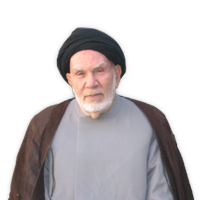Difference of Religions on the Subject of Resurrection
In the Name of God
Difference of Religions on the Subject of Resurrection.
We have decided to explain for you the subject of prosperity and cruelty in detail and we had promised to describe a few points about Active Intellect and Resurrection.O viewer and researcher! We shall now speak about Resurrection.Pay attention! We are talking with you researchers and scientists. You are certainly aware that everything existing in the material world (Nasut) and changeable world will be finished. Humans trust it to a certain degree, but the entire world whether or not they try scientifically or intellectually will become aware that our main home is not this world; the material world is our temporary abode. This world passes and the place which delights and excites us is called the World of Resurrection. Because this subject is one of the most fundamental issues in the world of philosophy, it is a part of the primary necessities of religion.Some other groups like naturalists and atheists believe that Resurrection is impossible. Others who believe in the science of the fundamentality of the body say: “Humans are nothing but this body and organism and when death occurs for this body it is destroyed and it does not return again.”But studies by Researcher and Divine Philosopher, Professor Mousavi, reveal that throughout the six thousand and six hundred and a few Ayahs existing in the Holy Quran Resurrection and return have been included clearly or implicitly. For example, in Ayahs 15 and 16 of the Holy Surah Mu’minun it is stated as follows:"Then, verily after that you will be dead. Thereafter, you will be resurrected on the Day of Judgment."We now present an excerpt of teachings and researches of Researcher and Divine Philosopher, Professor Seyyed Ali Mousavi which has been explained based on Mulla Sadra’s book, Asfar.Mulla Sadra in Chapter 8, p. 163 of Volume 9 of Asfar commenced a chapter about “differences of people’s religions on the subject of Resurrection” based on which he described and studied the views of different religions on Resurrection, the beginning of which is: "Verily, ordinary people’s illusions and ignorant people’s ideas (like fire-worshippers) are that returning of bodies and souls is unfeasible."Throughout these Ayahs, the beginning of human creation and development and the period of spiritual rising and manifestation are included. The same applies to when God introduces man as, “So blessed be Allah, the best of creators,” Therefore, through manifesting certainties and principles from the Ayahs of the Holy Quran, God says: We shall once again resurrect and make you return with the same appearance, hand, leg, face, body, thoughts, Mujarradat (immaterial parts), certainties, dispositions, sentiments, realization of realties, vision, hearing, occurrences, conception of concepts, name, genealogy, blood, structure, vein, method, size, identification of visage, countenance, primary organism and supplies that you carry from the Nasut (the material world) to the Resurrection World.Be aware that we will make you return from the particles of the soil, atoms of water, leaves, branches, fruits, dimensions and that which cannot be measured. O Man, we will make you return to your primary state.Our proof, whether a posteriori or a priori reasoning, originates from the heart of Ayah 16 of the Holy Surah Mu’minun that is the brightest of words and these letters are sacred. “Verily, you will be resurrected on the Day of Judgment”The words, "You will be resurrected” causes the movement of the world and the addressee is humanity. For this subject to be introduced with certainty, the plural present tense has been used in the sentence. Do not ask why the verb has been used in the masculine form. In most instances, God addresses us in the masculine form. This does not mean that the feminine play no role; it is the power of generality over predominance. Researcher and Divine Philosopher, Professor MousaviOctober 2013, Volume 9 of Mulla Sadra's book, Asfar




Comments
0